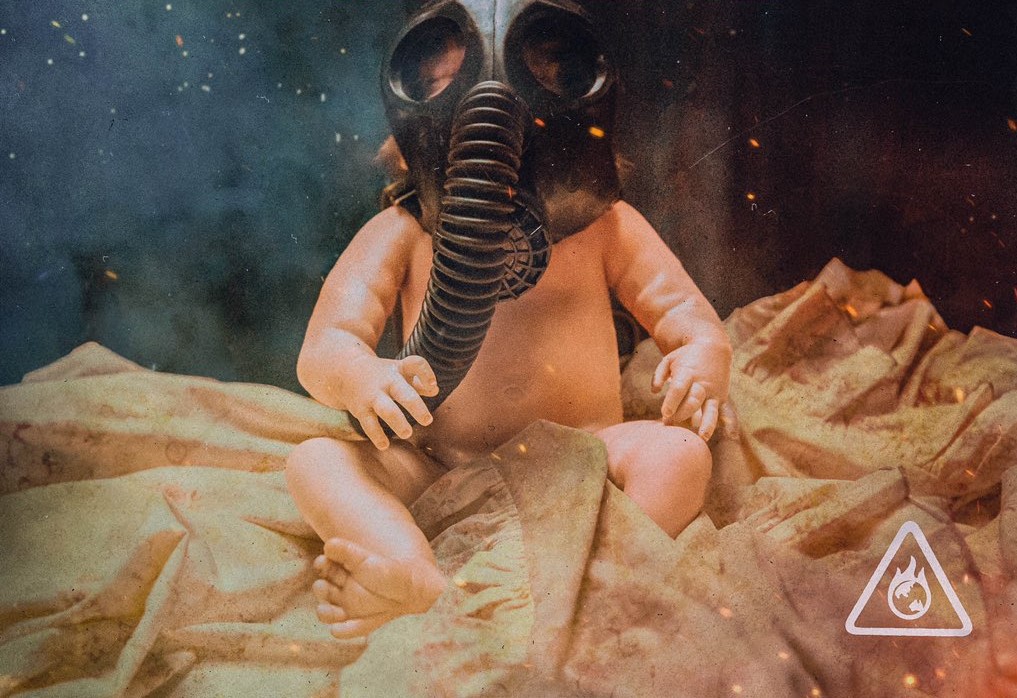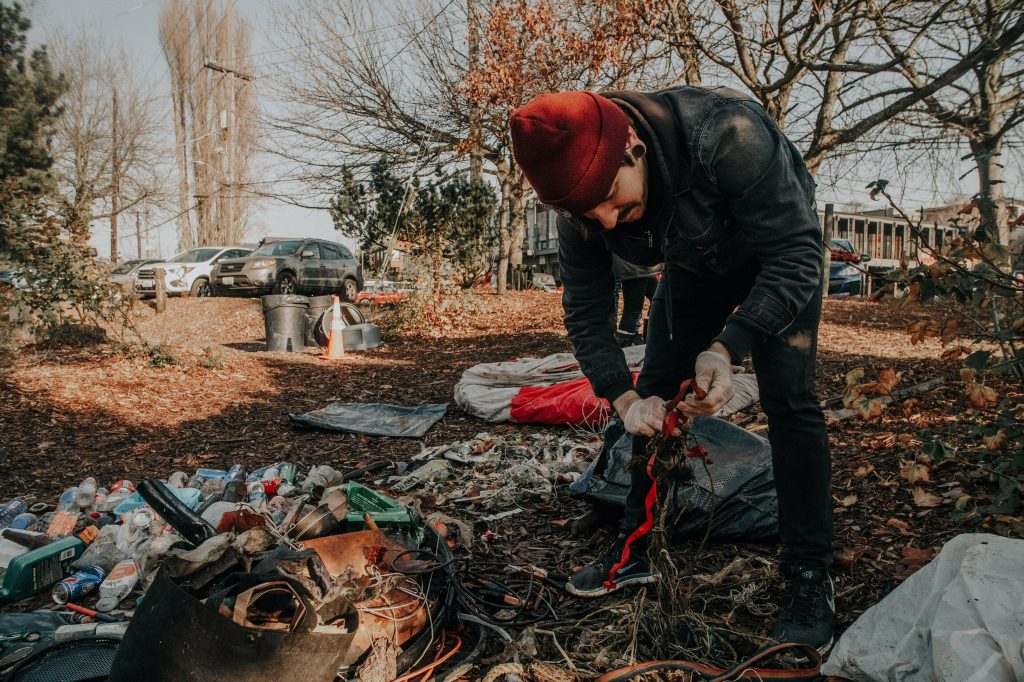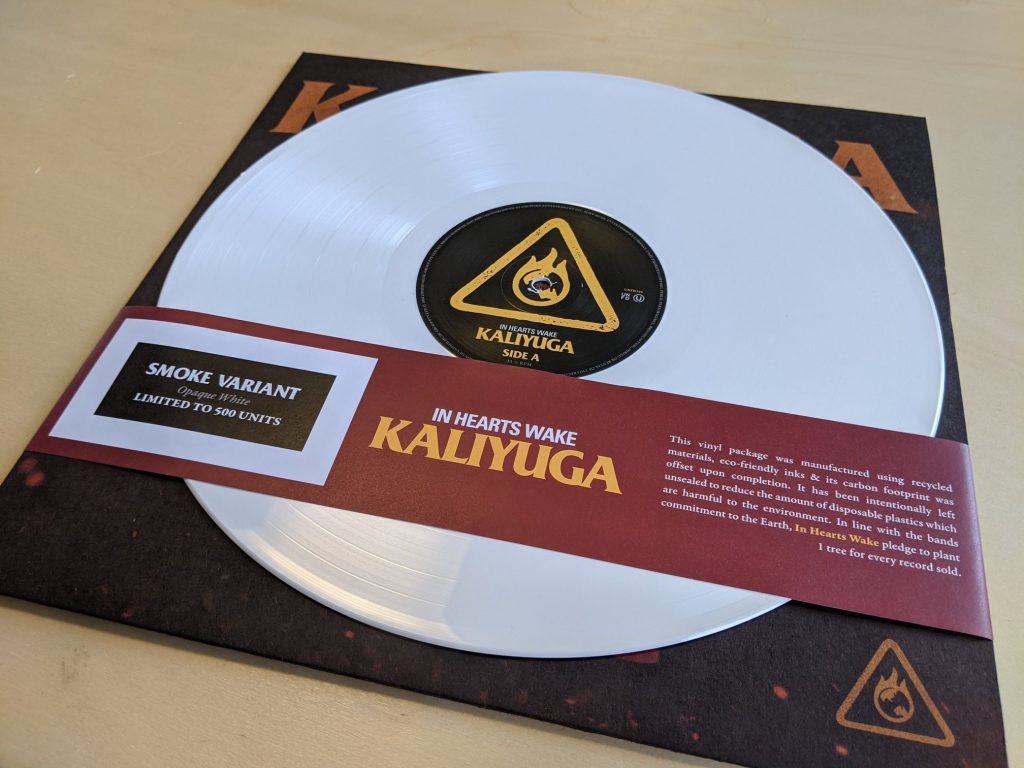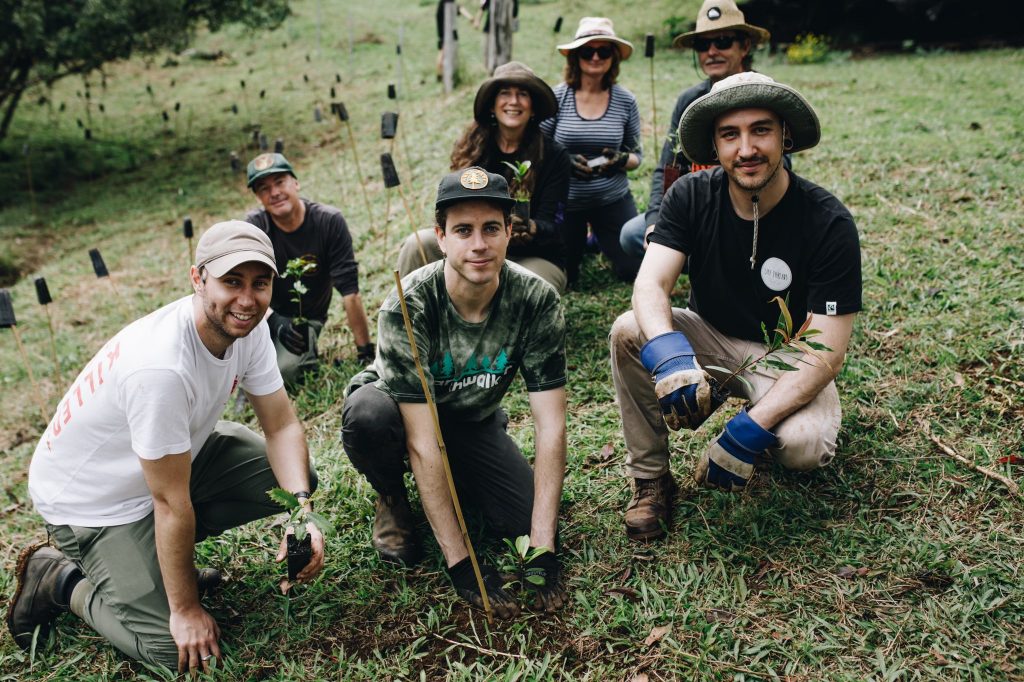While most of us spent our teenage years sculpting the perfect emo fringe, Swedish luminary Greta Thunberg was changing the world.
On Friday September 20th, 2019, at a strike for climate change in New York City, Greta– then aged 16 – delivered a line that would echo throughout communities: “This is an emergency – our house is on fire.”
It’s a key phrase that launches album #5 from Byron Bay metalcore warriors In Hearts Wake: the volatile, visceral and vicious Kaliyuga, a record that at once laments the damage humankind has so carelessly inflicted on its greatest source of life, yet looks hopefully at a future in which a new generation rebuilds it.
It fulfils a journey the quintet set out on over half a decade ago – 2014’s Earthwalker, 2015’s Skydancer and 2017’s Ark focused on the respective elements of earth, sky and water, leaving fire as the natural next step.
In November of 2018, the deadliest wildfires in Californian history devastated over 150,000 acres of land. At the time, Jake Taylor – frontman of In Hearts Wake and a devout environmentalist of his own accord – was living in Malibu: “Being right there and watching ash fall into my own backyard,” he recalls to BLUNT.
“That really intensified the seriousness of this whole climate crisis for me.”
Between January and October 2019, fires raged through almost 2.25 million acres of the Amazon rainforest. At the turn of 2020, Australia’s own east coast went up in flames.
These events led Taylor to a breaking point which hadn’t yet shown itself in his art; a staunch and uncensored warning of how truly fucked our futures are if we don’t improve their attitudes towards the planet. More than ever, Taylor’s guttural intensity carries an immense weight of real-world significance.
“The word I’d like to use is ‘urgency’,” he stresses.
“Rather than just being pure anger and frustration, these emotions come out [on Kaliyuga] in a sense of urgency. It gets labelled as ‘heavy’ music a lot, and I feel like that’s really got a place right now, because the world is in a heavy state. There are a lot of heavy things going on, so heavy music really has a voice in today’s society.”
The age of the hellbringer
In traditional Buddhist scripture, Kali Yuga (the “age of Kali”) marks the last of four phases the world goes through in a cycle of ages. It’s noted as the apocalyptic end before the world forcibly resets in the wake of humanity’s blind self-destruction.
“It was said [in the Sanskrit scriptures] that we would lose touch with the powers that be,” Taylor explains further. “Rather than the world around us, we would worship the flesh. There would be oppression, materialism, destruction and disease. We’ve kind of lost sight of, and lost touch with, what really matters.”
Reckoning with the world burning around him (Kaliyuga was recorded before the Australian bushfires of 2019, but towards the end of the Amazon wildfires’ peak), Taylor found that as the record started taking shape, the material strongly reflected the core message of the scripture outlining Kali Yuga.

“All of the songs were tales of the self, and tales of the collective injustices we needed to address,” he says. “They examine a lot of what’s happening in the world and they all have dystopian themes to them – so when it came to finding the overarching theme or soul of this record, I was like, ‘Ah, this feels a lot like Kali Yuga.’”
“It was a pretty instant thing, too – I didn’t have to convince any of the guys to get onboard with it.”
Rather than a display of the demon from whom the eponymous term Kali Yuga derives, In Hearts Wake use the Buddhist goddess also named Kali for their model, in an effort to contrast the innately virtuous morality of humankind with the self-destructive vices we use to violate it.
The gas mask-clad baby represents us.
Taylor ruminates that we “need to look at, and perhaps reconsider our perspective on, how we want to spend our money, how we want to impart medicine, how we want to use firearms and weapons, and how we want to power our planet and with what fuels. She’s holding up all these things that threaten our future and saying, ‘Are you willing to risk your life for these?’”
Making good in the badlands
By sheer proxy of their existence, In Hearts Wake are hypocrites.
That’s not to say that their message is invalid. Between the fuel it takes to fly a band around the world, the energy to power their live shows and producing their merchandise, it’s arguable they’d contribute more damage to the global ecosystem than the average, non-environmentally conscious punter.
But this is something Taylor and co. are well aware of. ‘Accountability’ is a word Taylor stresses in reference to how In Hearts Wake aim to practice what they preach.
“As with any journey,” he says, “it’s been about taking steps.”
“When we did Earthwalker, we went out and planted thousands of trees; for Skydancer, we took that initiative further and increased that awareness; and then we took that next step with Ark where we were doing the physical marine debris cleanups with our fans instead of signings.”

It was during those cleanup sessions that Taylor came face to face with a blindspot that loomed in the dissonance between his personal love for the environment and his career as a touring musician.
“We were pulling out hundreds and thousands of these plastic bottles and coffee cups – all this stuff that we were getting in piles on the beaches,” he recalls. “And then we got onstage that night and saw all the same stuff being used at our shows. We had to step back and go, ‘Hold on… Something’s not quite right about this.’
In order to justify spending the resources it would take to produce another record, In Hearts Wake set an ambitious goal to make Kaliyuga the world’s first carbon-offset metalcore album.
Because nothing like this had ever been done before, the band initially found themselves in a confusing spot.
“There was no ‘how to’ guide, unfortunately,” Taylor chuckles. “It’s a hard process to kick off because you’re trying to to look at all the blindspots, but you don’t quite know what they are – and then you’re always second guessing, like, ‘Are there more blindspots that I haven’t seen?’ It takes a lot of deep diving.
“The planet pays less for this, and that’s just a model that we, as human beings, need to adopt as best we can right now.”
“We did a lot of calculating to figure out what our carbon footprint was – calculating the data, flights, and driving miles, getting a power reader and putting it on the mains to gauge our power consumption, counting the lights, looking at the freights of things… And then we worked with a carbon consultant [Grace Gallagher, of Byron Bay environmental agency Control Union] to generate the data that we could use to offset that footprint.”
In the end, the recording process for Kaliyuga produced 26.37 tonnes of carbon dioxide equivalent – considerably less than most other bands would chew through.
In order to reverse the environmental impact made, they purchased carbon credits in the Yarra Yarra Biodiversity Corridor.
“By purchasing carbon credits,” Taylor explains, “you’re purchasing a stock of trees that will be planted in areas affected by deforestation, reintroducing native flora to First Nations land, and ultimately sequestering the carbon you’d spent to begin with. The credits are just the mechanism that calculates how much carbon those trees are going to sequester when they hit full growth.”
“The co-benefits are that it’s on First Nations land, it creates jobs – which the First Nations people are a part of – the animals native to that land are able to return, the ecosystem is restored, and everyone wins, really.”
When it came to manufacturing the physical copies of Kaliyuga, the band endeavoured to go completely plastic-free and utilise recycled materials in all aspects of the production.

To achieve this, they teamed up with the Holland-based company Deepgroves, who aim to revolutionise the vinyl game with 100 percent sustainable pressing methods. They churn the discs out using a calcium-based vinyl product (as opposed to highly pollutant PVC sourced from Thailand, as most mainstream plants do), make all the booklets and jackets from recycled materials, print using non-harmful soy-based inks, and seal with paper-based tapes.
They even run the entire factory on biofuel, and offset the carbon produced in shipping their products out.
“They are by no means making a second-grade product. For me, this is the way forward for the music industry. I can definitely see more and more people adopting this model as we move forward.”
“It does cost almost twice as much,” Taylor admits. “But we pay more now so that you pay less later. The planet pays less for this, and that’s just a model that we, as human beings, need to adopt as best we can right now.”
“And for the most part, people are really supporting this! I believe people actually care that if they’re getting something that speaks to the planet they live on, and if it’s a quality product, they’re willing to support it.”
Embracing a force of life
In Hearts Wake have pledged to plant one tree for every thousand views doled to the official video for Kaliyuga’s lead single, ‘Worldwide Suicide‘. At the time of writing, the clip sits at a relatively solid 313,000 plays.
The band are able to make such a mission possible thanks to Taylor’s side-hustle running the brand Earthwalker Tribe, which he established in 2016 as an effort to further his initiative producing high-quality merchandise with an eco-friendly spin.
“Being a big part of all the band’s merch over the years, there was something missing for me,” Taylor notes. “I wanted to have the freedom of not needing to have a lyric or a band name on a shirt – I wanted it to just be about cultivating a community that loves the Earth, and loves to be outdoors and explore it. And I wanted it to do good, so I set up the brand as an opportunity to plant as many trees as I could.”

As of this January, Taylor – in collaboration with non-profit org Trees For The Future – had planted a total of 13,900 trees; he notes that 2020 sales have been exceptionally strong so far, too, so that number is set to grow exponentially once he’s able to quantify sales data from the last seven months. The trees are planted in forests throughout Cameroon, Kenya, Senegal, Uganda and Tanzania – areas most sorely affected by deforestation in decades past.
“Earthwalker has become a bit of a bridge for me,” Taylor says. “I’ve been able to work with a bunch of tree-planting companies and meet with some amazing organisations all over the world. And now In Hearts Wake is able to plug into that, too – we’re planting a massive amount of trees for the ‘Worldwide Suicide’ video, and we’re also going to plant a tree for every vinyl record purchased as well.
“Who knows how far we’ll be able to take it from here – whether we start [planting trees] for every concert ticket sold or every t-shirt… There’s lots of exciting opportunities for us to explore. I’m not really sure how we’re going to unpack them all just yet.”










